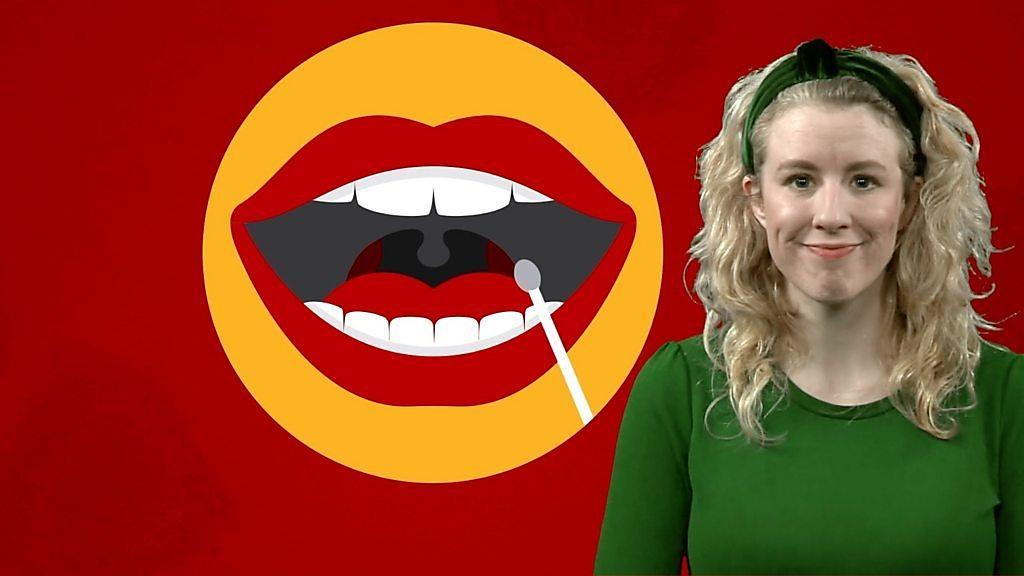Covid-19: Everything you need to know about testing in schools
- Published
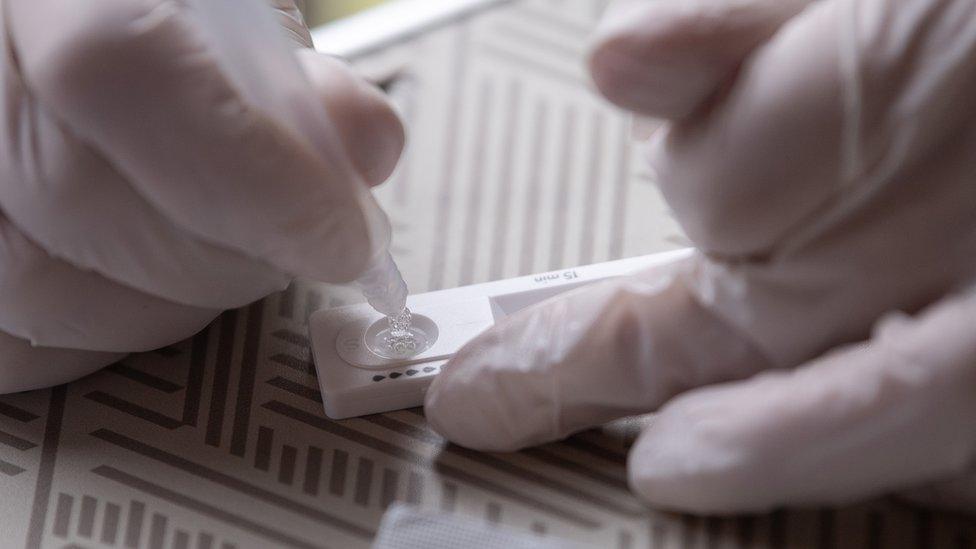
As part of the return to school some staff and year groups are being offered at-home Covid-19 tests.
Schools are using a self-test Lateral Flow Device (LFD) which provides a result within 30 minutes.
This Q&A by BBC News NI explores why the tests are being offered, who is getting them and how it will be phased to other year groups.
Who is being tested?
Currently only post-primary staff and years 12, 13 and 14 pupils are being offered the twice-weekly lateral flow tests., external
However that will then be rolled out more widely to staff in primary and pre-schools after Easter.
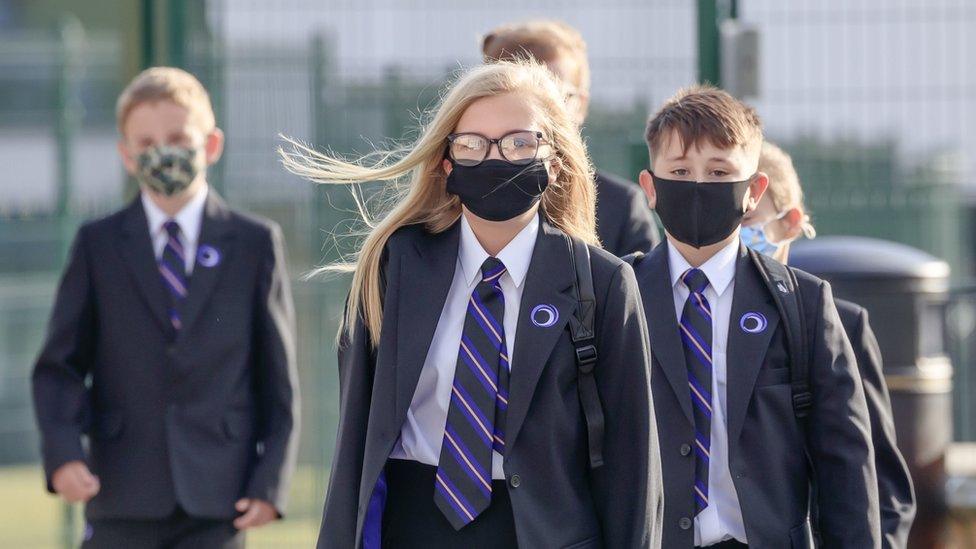
New criteria for transfer to post primary schools will be published on Friday
The Public Health Agency (PHA) said the rollout is to reduce the risk of the virus being transmitted in schools.
Schools will issue consent forms and record who has received kits, but tests will not be taken in school.
Demonstrations of lateral flow tests in school are happening this week and parents, who have signed consent forms, should be given tests for home use by the end of this week.
Is testing voluntary or mandatory?
It is voluntary and teachers do not have to carry out tests for coronavirus on pupils.
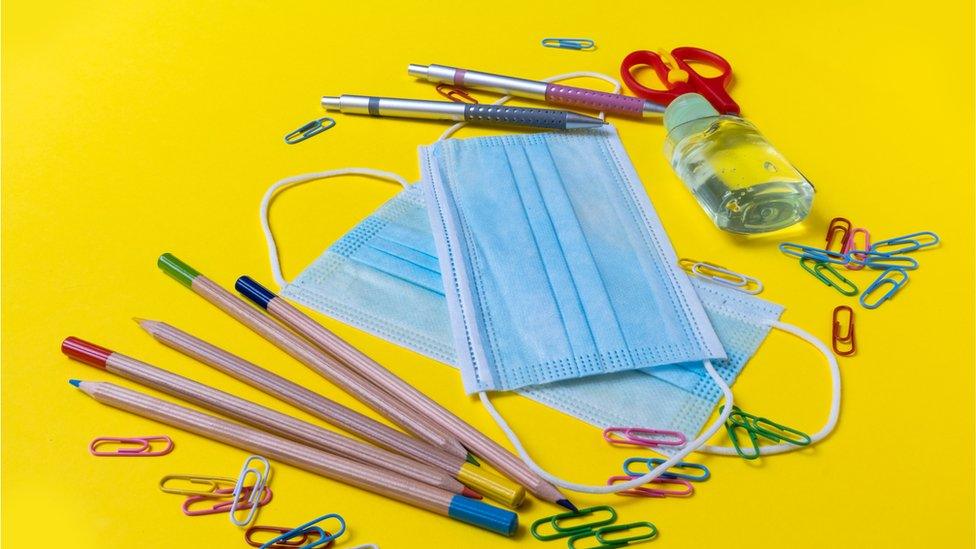
Parents are being asked by their school to give their permission to supply them with tests via consent form.
However, while it is not compulsory, eligible pupils and staff are being urged to use the tests.
The Department of Health said: "You are strongly encouraged to take part to help keep your school or your child's school safe for all those that use it."
Guidance from the Education Authority (EA) and PHA is that staff who wish to participate should take the test at home first.
The Department of Education said the tests should only be used by those they have been allocated to.

Which tests are being used?
The tests that are being used are Lateral Flow Device (LFD) tests.
They can involve a swab from the nose or throat, which is dropped into liquid. The solution is then added to a test strip which shows a result in 20-30 minutes.
Earlier in March, Mr Weir said he had read some reports concerning the effectiveness of the lateral flow test and the possibility of "false positives".
Public Health guidance states: "No test is 100% perfect but the speed and convenience of LFD tests means that they are very successful in identifying asymptomatic individuals."
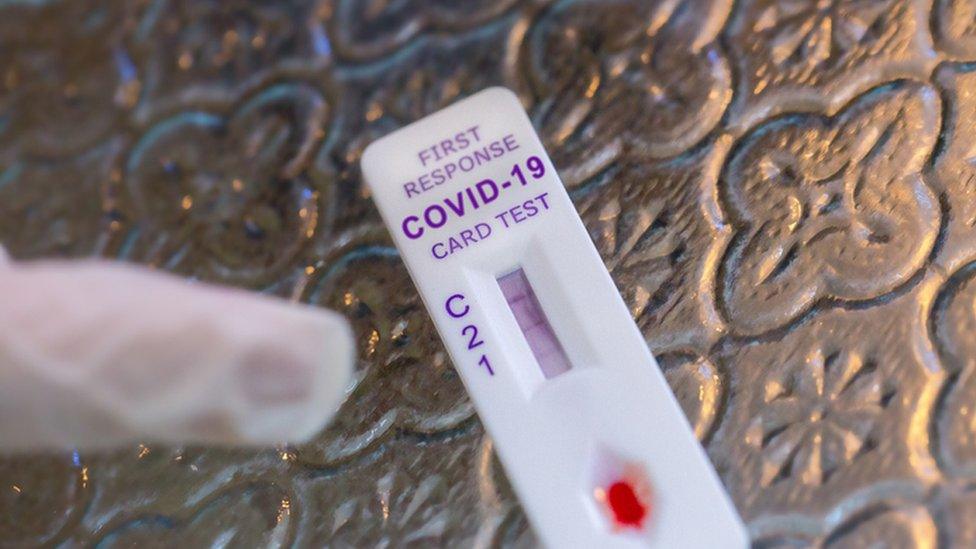
"A small proportion of people may receive a false positive result but in NI anyone testing positive must immediately book a PCR [polymerase chain reaction] test to confirm the result.
"It is also possible to get a false negative if an individual is in the early stages of infection. This is why everyone will be tested regularly so that no cases will be missed."
How do I take the test?
Schools will arrange a demonstration of how to use the kit the first time.
Although the tests are quick, it is important they are done correctly to give accurate results.
The BBC has made this video as a general guide to using a lateral flow tests, but do check the instructions on your packet and follow the advice from your school as they can vary.
Laura Foster explains how lateral flow tests work and how to do one
Why are schools testing staff and children?
The department said that the tests are "another tool in trying to break the chain of transmission of the virus that will help to reduce disruption in schools".
"People who are asymptomatic will not show any symptoms but could still pass the virus on without knowing it."

Older students in years 12-14 are included as prevalence of Covid-19 tends to be higher among this group, the department added.
Mr Weir said the testing programme will "provide reassurance for pupils and teachers that the risk of large groups of exam year classes having to isolate during this important period will be considerably reduced".
What must a pupil do if they get a positive test result?
The pupil and people in their household must isolate immediately.
In-school contacts are not required to isolate at this stage. The person must then take a PCR test. It identifies whether you are currently infected.
This rules out a potential false positive LFD tests.
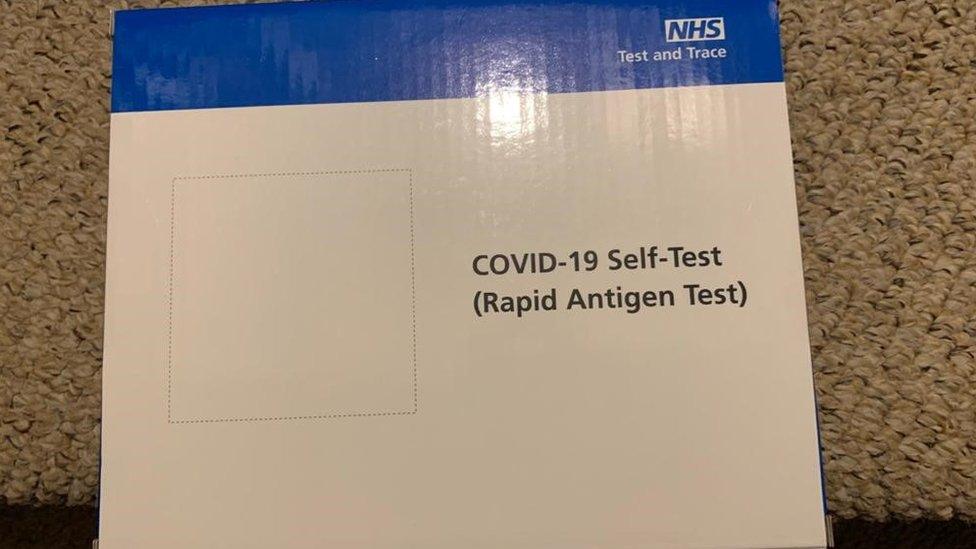
If the PCR test is negative the pupil, and their household, can stop isolating and return to school.
If the PCR test result is positive, the individual and their household and all other close contacts must complete a full 10 days of self-isolation.
Will this system be rolled out to other year groups?
After Easter, all school staff will be offered regular testing.
The plan has three phases:
In phase 1, from 22 March, all staff in post-primary schools and all pupils in Years 12 -14 will be invited to familiarise themselves with twice weekly self-testing kits
In phase 2 after the Easter break, the programme will expand to include all staff in primary schools
Very shortly after that, phase 3 will add nursery, pre-school and, at least initially, pre-school education providers participating in the Pre-School Education Programme.

Should staff who have been vaccinated still use the LFD tests?
Yes, the department advises that testing should continue after vaccination.
Vaccines reduce the risk of infection but do not eliminate it altogether, the department says.
- Published18 March 2021
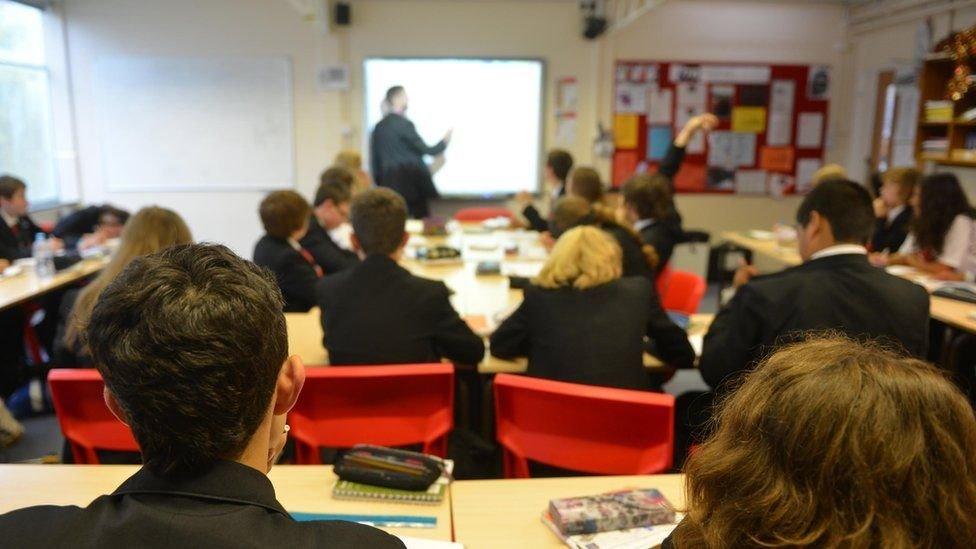
- Published15 October 2021
